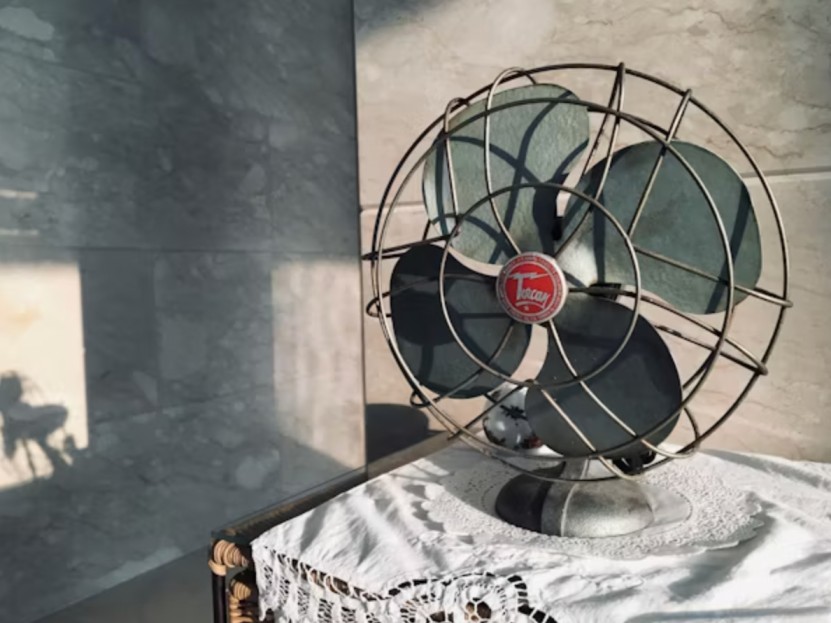From manufacturing facilities to data centers and even in massive HVAC systems, managing airflow efficiently is vital to these industrial operations. One of the most advanced and convenient airflow solutions are impeller fans. Unlike other conventional fans, these focus on air movement, handling pressure, and system dependability. Furthermore, when used with filter fans, their thorough optimization enhances air quality as well as operational efficiency while preventing damage to sensitive equipment. This article discusses the effectiveness of impeller fans, their reasons of industrial application indispensability and their advantages.
Now let’s focus on their working and construction. They are both referred to as centrifugal and radial fans. Unlike axial fans, impeller fans have a distinct method of air circulation. In comparison to axial fans, impeller fans draw air to their center and blow it out to a 90 degree angle. This makes it easier to build systems with ducting, filtration units, and places with high resistance airflow as the fans can function well in high static pressure.
The important features of impeller fans are the following:
- Achieves high static pressure: Overcomes ductwork and filter resistance.
- Effective airflow direction: Uniform spread of air throughout the systems.
- Adaptable Design: Used in numerous industries such as HVAC, cleanrooms, and electrical enclosures.
Impeller fans in conjunction with filter fans ensure sensitive industrial systems have clean airflow to prevent dust and other particles from contaminating equipment and products.
Benefits of Using Impeller Fans in Industries
In industrial settings, the choice of using impeller fans is preferred due to the following advantages:
- Improved Efficiency in Airflow: Provides constant airflow in highly resistant systems because of the centrifugal design.
- Consistent Operation: Withstanding continuous operation, extreme heat, and variable loads makes impeller fans reliable.
- Reduced Noise: Compared to some axial fans, the advanced design of impeller fans results in quieter operation due to reduced turbulence.
- Energy Savings: Moving air through complex systems is less expensive with impeller fans due to precision in airflow and pressure.
Industrial facilities maintain operational continuity and equipment longevity as well as diminished energy costs. Coupled with filter fan systems, impeller fans guarantee strict operational standards for both airflow and air cleanliness.
Impeller Fans in Industry Use
Many industrial areas utilize impeller fans because they are easy to use and offer a lot in regard to efficiency and performance. Here are some fans and their functions:
- HVAC Systems: Impeller fans enhance air flow efficiency in heating and ventilating air conditioning systems, especially in systems that are ducted or have high resistance areas.
- Data Centers: High pressure fans are critical in forced cooled server environments to enhance server cooling and to prevent overheating.
- Manufacturing Facilities: Used in process ventilation, extraction systems and dust control to provide a safe and productive environment, and it is also utilized in virtually all clean rooms.
- Filter Fan Systems: Used with both impeller and filter fans to control the particulate levels in environments when the contamination of the environment will have unacceptable influence on the quality of the products produced.
- Electrical Enclosures: Used to ensure that sensitive components are not exposed to high temperatures, dust, or impurities that may damage the components.
With the adoption of impeller fans, B2C buyers are able to control the flow of air, enhance the business performance and efficiency, and enhance compliance with industrial standards.
Improved Air Quality Integration with Filter Fans
Filter fans are meant for providing a clean and filtered air stream to industrial systems. This aim can be compliance when impeller fans are used:
- Better filter efficiency: Impeller fans are able to maintain the required flow of air across each of the filters, therefore ensuring that the required particles are trapped.
- Lower Operating Costs: With clean filtered air, a reduced rate of servicing, repair works, and component and appliance replacement, including overheating, wear of machine parts, and their components, is observed.
- Cut down on service intervals: Maintain consistent airflow and filtration to minimize the build-up of dust and debris, decreasing the frequency of required cleans.
- Optimized energy usage: Overhead expenses related to operating costs are reduced due to the efficient airflow of the impeller fans, decreasing energy required to move air through the filters.
This combination is invaluable in sensitive industrial areas like electronics, pharmaceuticals, and chemical manufacturing, in which the air requires high filtration and the temperature requires consistent cooling.
Key Things to Evaluate When Selecting Impeller Fans
These and other industrial-related factors are important for B2B customers to consider when purchasing impeller fans.
- System Resistance: Verify the fan’s efficiency of working through the static pressure of the filters, ducts, and other equipment.
- Airflow Requirements: Ensure the volume of air for cooling or ventilation controls matches the fan capacity.
- Noise Levels: Evaluate the acoustic requirements in noise-sensitive environments with personnel.
- Material and Durability: Ensure the fans are built to withstand operating conditions, temperature, humidity, and dust exposure.
- Integration with Filtration: Think of the filter fan systems for controlled and clean air.
Proper selection ensures maximum efficiency, equipment protection, and reliability on the operation of impeller fans throughout industrial applications.
Maintenance and Operational Procedures
Regular maintenance of Impeller fans aids in preserving them and optimizing their efficiency for a longer time:
- Visual and Remote Inspection: Visually and remotely check for wear and corrosion on the fan blades and housing for any debris accumulation.
- Filter Fan Maintenance: Ensure the filters on the systems using filter fan combinations on fans are cleaned or replaced on a guideline provided by the manufacturer.
- Motor Maintenance: Maintain the individual motor parts for prevention of friction and to sustain a proper running temperature.
- Monitoring metrics: Monitor the airflow, pressure, and noise output to diagnose any areas of loss efficiency.
- Adjust operational parameters: The configuration and the speed of the fan should be changed to be in sync with the operational demand while still maintaining efficient energy use to uphold a constant airflow.
These practices aid in optimizing the performance of industrial setups and minimizing the risks of unscheduled downtimes, ensuring their availability always on demand.
Fuel and Carbon Emission Conservation
The energy use of industrial functions has a constant focus on sustainability and energy efficiency. The goals are aided by using impeller fans through:
- Decreased Energy Use: The advanced industrial fans with better efficiency are capable of moving a high amount of air while consuming a significantly lower amount of energy.
- Decreased energy use: Less energy consumption leads directly to lower carbon emissions, minimizing the environmental impact of industrial operations.
- Integrating with smart technologies: Impeller fans are applicable to be used with VFDs, and other control systems to be used on demand and change the airflow accordingly to the need in real time.
The goals of long-term sustainability can be met when using energy-efficient impeller fans in conjunction with filter fan systems as they preserve effective cooling and air quality while minimizing power use.
The use of impeller fans in modern industrial applications is invaluable as they provide high static pressure, air flow, and operate in an energy-efficient manner. They protect and control the quality of air, as well as maintain consistency in operations when used with filter fan systems. Having knowledge of the functionality, benefits, and available industrial applications allows B2B buyers to enhance the performance while reducing the maintenance and energy costs of the systems. The right selection of impeller fans optimizes the efficiency, safety, and sustainability of the ventilation, cooling, and air filtration systems in diverse industrial settings.

